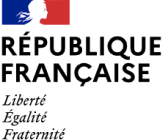On the 3rd March 2025, to mark the 20th anniversary ofOrganisme de formation the Europass platform, the agency Erasmus+ France organised an anniversary conference entitled “Europass: 20 years of serving the education and employment in Europe”. This event provided an opportunity to retrace the history of this service, highlight its development and reflect on its future prospects. As the National Coordination Point for the European Qualifications Framework, France compétences contributed to the success of the event by presenting the Europass Certificate Supplement, a document which France compétences is responsible for.
Europass: a constantly evolving service
Created in 2004 by the European Parliament and the Council of the European Union, the Europass system has evolved to become a key digital platform for skills management. The initial objective was to facilitate professional mobility in Europe, but with the rise of digital technology, the platform has been able to adapt and offer new functionalities.
Designed as a one-stop shop, free and universally accessible, the platform is available in 31 languages. It enables citizens to build up a portfolio of skills, using standardised documents such as the Europass CV, the Europass Mobility, the Diploma Supplement and the Certificate Supplement.
A day of discussions and discoveries about Europass
The anniversary event of the 3rd March 2025 offered a day rich in discussions thanks to panels, workshops and moments of celebration. These discussions brought together speakers from a variety of backgrounds and provided an opportunity to look back at the major stages in the creation of Europass. The day also highlighted the impact of Europass in France and provided an opportunity to discover features that may be poorly known, but are more relevant than ever.
France compétences and the Europass platform
France compétences, as the National Coordination Point for the European Qualifications Framework, is responsible for communicating data from the RNCPRépertoire national des certifications professionnelles files to the Europass platform and making Certificate Supplements available. This document, which is different from the Diploma Supplement, is a generic (non-nominative) document available for free. It describes the skills acquired through a qualification, diploma or vocational training certificate registered within the RNCP.


